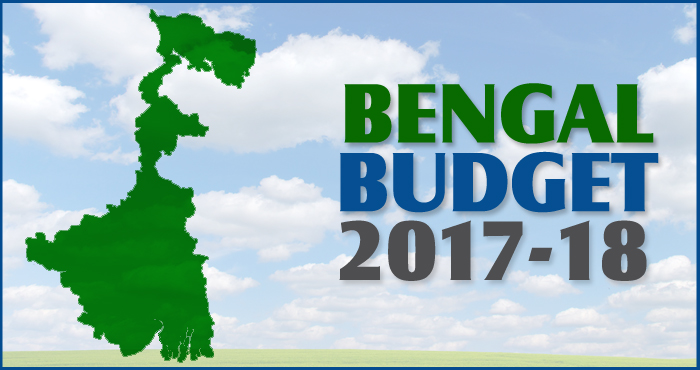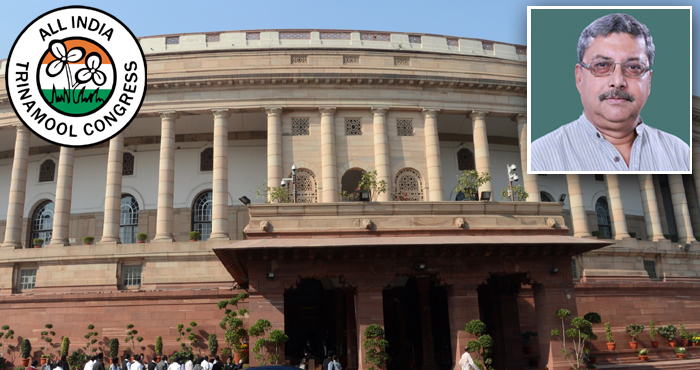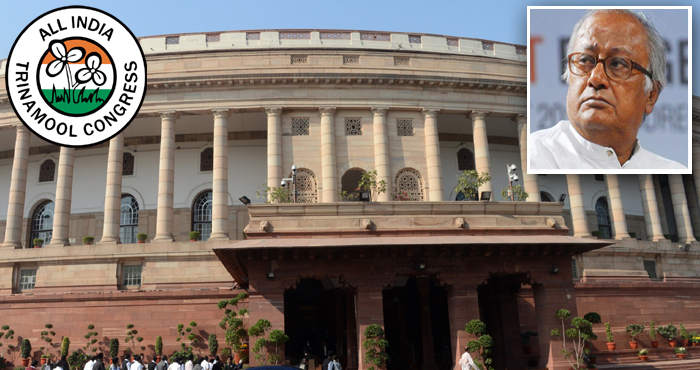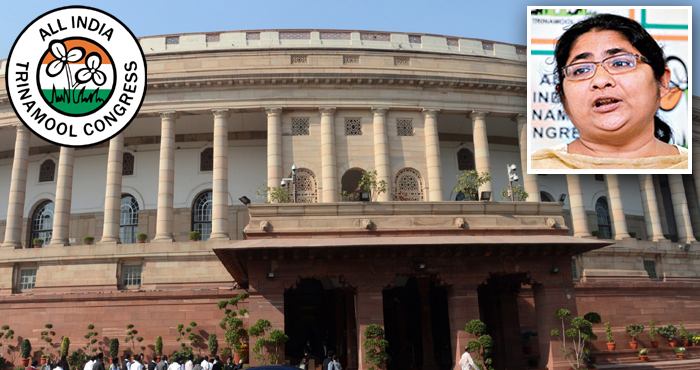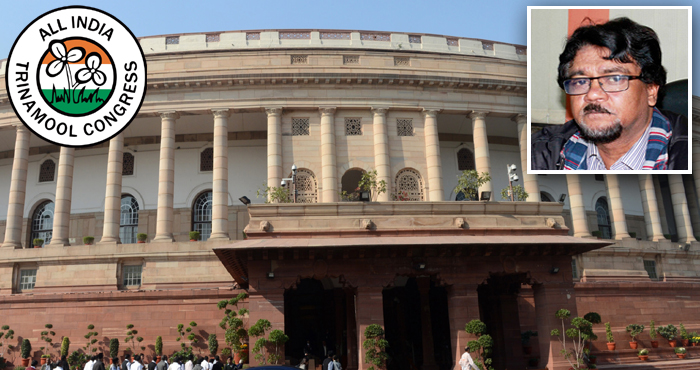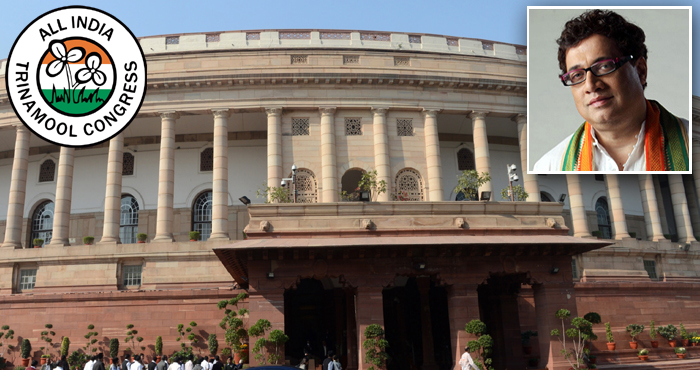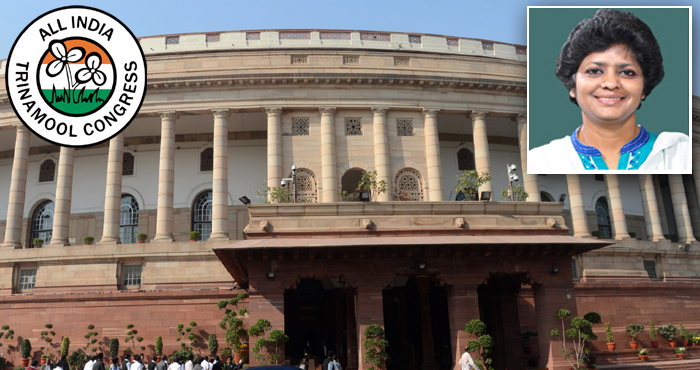Bengal Finance Minister Dr Amit Mitra presented the State Budget for 2017-18 at the Legislative Assembly today.
The Budget reflected the enormous effort put in by the Trinamool Congress Government to turn around a State left in ruins by the 34 years’ of Left Front rule. Despite being still in debt, and with no moratorium being provided by the Centre despite repeated requests, the State has made huge progress on all fronts.
For example, Dr Mitra said, “Tax collection has increased by 103% from 2010-11 to 2016-17”, which is a record among States.
After winning the 2016 Assembly election with a huge mandate, the developmental work in the State has continued apace.
HIGHLIGHTS OF BENGAL BUDGET 2017-18 SPEECH
Debt problem
- On the one hand, we have the legacy of the enormous debt left behind by the Left Front Government. On the other hand, there was the effect of demonetisation.
- We will have to pay more than Rs 47,000 crore as debt instalment this year.
- We may be cash-strapped but we are a humane Government; we believe in “hanste hanste chalna seekho”.
Growth
- Growth rate of India’s Index of Industrial Production (IIP) was -0.1% in 2016-17, while that of Bengal was 4.8%
- Plan Expenditure of Bengal increased fourfold from 2010-11 to 2016-17
New announcements
- Anganwadi workers, who provide nutrition to pregnant women, and new mothers and infants, brought under Swathya Sathi scheme
- ASHA workers, who are a pillar of strength in the health sector, brought under Swathya Sathi scheme
- Monthly allowance of Anganwadi workers will be increased by Rs 500, benefitting 2 lakh workers
- Monthly allowance of ASHA workers will be increased by Rs 500, benefitting 50,000 workers
Fund
- 50,000 artisans who lost jobs due to demonetisation to be given an aid of Rs 50,000 each
- Rs 50 crore allocated for small businesses
- A special fund of Rs 100 crore created for farmers
Taxation
- Fundamental reforms in the taxation system ushered in, including simplification of the process and e-taxation
- Tax collection increased 103% from 2010-11 to 2016-17, a record among States, reflecting the Trinamool Congress Government’s commitment and transparency
- Stamp duty will be reduced to 2%, from 5%
- Education cess and rural employments cess will be exempted for the betterment of tea industry.
GST
- GST must be for the benefit of common people and small traders, among others; the State’s financial autonomy and federal structure must not be hampered.
- GST Council has adopted the recommendations put forward by Bengal – Bengal has won what was sometimes a lonely fight
Settlement scheme
- New settlement scheme started in December 2016, due to the overwhelming response received, extended till March 31, 2017
VAT
- Ceiling of primary slab of VAT increased from Rs 10 lakh to Rs 20 lakh
- Small traders and enterprises will no longer have to physically come to State Government offices to file hard copies of documents for VAT purposes
- VAT audit report will be abolished, benefitting 30,000 businesses
- All pending cases of VAT settlements will be disposed off by December 31, 2017
- Small and medium enterprises and manufacturing companies to be brought under the ambit of minimal VAT scheme
- VAT on solar water heaters, bio-diesel, terracotta tiles, kerosene stoves and sal leaf products will be abolished
Planned Expenditure (PE)
- Despite demonetisation, Plan Expenditure of Bengal for 2017-18 will be Rs 64,733 crore
- Target for revenue collection in 2017-18 is Rs 55,786 crore
Employment
- 13.27 lakh employment opportunities created during last fiscal
২০১৭-১৮ অর্থবর্ষের রাজ্য বাজেট পেশ করলেন অর্থমন্ত্রী অমিত মিত্র
আজ বিধানসভায় ২০১৭-১৮ আর্থিক বর্ষের বাজেট পেশ করলেন অর্থমন্ত্রী ডঃ অমিত মিত্র।
৩৪ বছরে বাম শাসন বাংলাকে ধ্বংস করার পর বাংলার উন্নয়নের কর্মযজ্ঞ প্রতিফলিত হয়েছে এই বাজেটে। বাম আমলে করা বিপুল ঋণের বোঝা মাথায় নিয়ে চলছে রাজ্য। বারবার অনুরোধ করা সত্ত্বেও কেন্দ্রীয় সরকার কোনও রকম সাহায্য করেনি রাজ্যকে। তাও রাজ্য সব দিক দিয়ে এগিয়ে চলেছে।
২০১৬ সালে বিপুল জনমতে পুনরায় সরকার গঠন করে মমতা বন্দ্যোপাধ্যায়। তারপর উন্নয়নের কাজে আরও গতি এসেছে। কেন্দ্রীয় সরকারের জনবিরোধী নোটবাতিলের সিদ্ধান্তে সারা দেশের অর্থনীতি ধুঁকছে। তা সত্ত্বেও তৃতীয় বিশ্ব বঙ্গ বাণিজ্য সম্মেলনে ২.৩৫ লক্ষ কোটি টাকার বিনিয়োগ যথেষ্ট আশা ব্যঞ্জক।
নোট বাতিল:
- নোটবাতিল সাধারণ মানুষের ওপর ব্যাপক প্রভাব ফেলেছে। কোন গণতান্ত্রিক দেশে এভাবে ৮৬ শতাংশ নোট বাতিল হয় না।
- মমতা বন্দ্যোপাধ্যায়ই একমাত্র নেত্রী যিনি প্রথম নোটবাতিলের এবং টাকা তোলার নিষেধাজ্ঞার বিরোধিতা করেন।
- ভারতের জি ডি পি বৃদ্ধির হার নিম্নমুখী, ১ থেকে ৩.৫ শতাংশ কমতে পারে।
- নোট বাতিল অর্থনৈতিক ও রাজনৈতিক জরুরি অবস্থার সমান।
- সাধারণ মানুষ চরম ভোগান্তির শিকার। ক্ষুদ্র ও মাঝারি শিল্প, শ্রমিক, চা, জুট, হ্যান্ডলুম, টেক্সটাইল – সব ক্ষেত্র ক্ষতিগ্রস্ত।
- নোটবাতিলের গোলপোস্ট এখন কালো টাকা থেকে ক্যাশলেস অর্থনীতিতে সরে গেছে।
- নোটবাতিলের আসল উদ্দেশ্য কারো জানা নেই। এর ফলে কারা উপকৃত হয়েছে?
- রিজার্ভ ব্যাঙ্কের স্বাধীনতা খর্ব করা হয়েছে। যুক্তরাষ্ট্রীয় পরিকাঠামোকে দুর্বল করার জন্য এই ষড়যন্ত্র।
- কেন্দ্রের নোট বাতিলের ফলে ভারতের বৃদ্ধির হার কমে ৭.১ শতাংশ হয়ে গেছে।
- সাপ্লাই চেন ও সহযোগী শিল্প ক্ষতিগ্রস্ত, শ্রমিকরা কর্মহীন হয়েছেন।
- নোট বাতিলের ফলে রাজ্যের বৃদ্ধির হার কমে হয়েছে ৯.২৭ শতাংশ।
- নোটবাতিলের প্রভাব পুরোপুরি কাটিয়ে উঠতে আরও ২-৩ বছর লাগবে।
- কৃষকরা কো-অপারেটিভ ব্যাঙ্ক ও লোনের ওপর নির্ভরশীল। নোট বাতিলের ফলে কো-অপারেটিভ সিস্টেম ক্ষতিগ্রস্ত।
ঋণের বোঝা:
- একদিকে আমাদের ওপর বাম সরকারের করে যাওয়া বিপুল ঋণের বোঝা। অন্যদিকে নোট বাতিলের প্রভাব।
- এবছর আমাদের ৪৭০০০ কোটি টাকা বেশি ঋণ শোধ করতে হবে।
- আমাদের কাছে টাকা না থাকলেও আমরা মানুষের জন্য কাজ করে যাচ্ছি। আমরা বিশ্বাস করি ‘হাসতে হাসতে চালনা শিখো’।
বৃদ্ধি:
- ২০১৬-১৭ অর্থবর্ষে আই আই পি বৃদ্ধির হার ছিল ০.১ শতাংশ, আর বাংলার আই পি বৃদ্ধির হার ছিল ৪.৮ শতাংশ।
- ২০১০-১১ থেকে ২০১৬-১৭ পরিকল্পনা খাতে ব্যয় চার গুন বৃদ্ধি পেয়েছে।
নতুন ঘোষণা:
- অঙ্গনওয়ারী কর্মীদের স্বাস্থ্য সাথী প্রকল্পের আওতায় আনা হয়েছে।
- অঙ্গনওয়ারী কর্মীদের মাসিক ভাতা বাড়িয়ে ৫০০ টাকা করা হচ্ছে।
- আশা কর্মীরা হেলথ সেক্টরের মেরুদণ্ড। তাদের স্বাস্থ্য সাথী প্রকল্পের আওতায় আনা হয়েছে।
- আশা কর্মীদের মাসিক ভাতা ৫০০ টাকা বৃদ্ধি করা হচ্ছে। এর ফলে ৫০ হাজার কর্মী উপকৃত হবে।
তহবিল:
- ক্ষুদ্র শিল্পে ৫০ কোটি টাকা বরাদ্দ করা হয়েছে।
- কৃষকদের জন্য ১০০ কোটি টাকার তহবিল গড়া হবে।
- নোট বাতিলের ফলে কর্মহীন ৫০ হাজার কারিগরকে ৫০ হাজার টাকা করে সাহায্য দেওয়া হচ্ছে।
কর ব্যবস্থা:
- আমরা কর ব্যবস্থায় মৌলিক পরিবর্তন করেছি । করা হয়েছে সরলীকরণ। শুরু হয়েছে ই-ট্যাক্সেশন ব্যবস্থা।
- ২০১০-১১ থেকে ২০১৬-১৭ অবধি রাজ্যের রাজস্ব আয় ১০৩% বৃদ্ধি হয়েছে।
- রাজ্যগুলির মধ্যে রাজস্ব বৃদ্ধির হারে বাংলাই প্রথম।
- স্ট্যাম্প ডিউটি ৫ শতাংশ থেকে কমে ২ শতাংশ করার প্রস্তাব দেওয়া হয়েছে।
- এডুকেশন সেস ও রুরাল এমপ্লয়মেন্ট সেস মকুব করা হচ্ছে।
জিএসটি:
- বাংলার দাবি ছিল জিএসটির ফলে যেন উপকৃত হন সাধারণ মানুষ ও ক্ষুদ্র ব্যবসায়ীরা, রাজ্যের অর্থনৈতিক স্বাধীনতা ও যুক্তরাষ্ট্রীয় পরিকাঠামো যেন ক্ষুন্ন না হয়।
- বাংলার দাবি জিএসটি কাউন্সিল মেনে নিয়েছে। হয়তো আমাদের একলা চলতে হয়েছে কিন্তু বাংলার জয় হয়েছে।
সেটেলমেন্ট স্কিম:
- আমরা ২০১৬ ডিসেম্বর মাস থেকে নতুন সেটেলমেন্ট স্কিম চালু করেছি। আমরা খুব ভাল সাড়া পেয়েছি।
- সেটেলমেন্ট স্কিম এর সময়সীমা ২০১৭ সালের ৩১ মার্চ অবধি বাড়ানো হবে
ভ্যাট:
- ভ্যাটের প্রাথমিক স্তরের সীমা ১০ লক্ষ থেকে বাড়িয়ে ২০ লক্ষ করা হল।
- ছোট ব্যবসায়ীদের আর সরকারি অফিসে গিয়ে ভ্যাটের জন্য নথিপত্রের হার্ড কপি জমা করতে হবে না।
- ভ্যাট অডিট রিপোর্ট তুলে দেওয়া হল। এর ফলে উপকৃত হবেন ৩০,০০০ ছোট ব্যবসায়ী।
- ৩১ ডিসেম্বর ২০১৭র আগে সমস্ত অমীমাংসিত ,ভ্যাট সেটেলমেন্ট করতে হবে।
- ক্ষুদ্র ও মাঝারি ব্যবসা ও ম্যানুফ্যাকচারিং ব্যবসাগুলিকে ন্যূনতম ভ্যাটের আওতায় আনা হবে।
- সোলার হিটার, বায়ো ডিজেল, শাল পাতার জিনিসপত্র, টেরাকোটার টালি, কেরোসিনে স্টোভ ভ্যাটমুক্ত করা হল।
পরিকল্পিত ব্যয়ঃ
- নোট বাতিল সত্ত্বেও ২০১৭-১৮ আর্থিক বছরের মুলধনী ব্যয় ৬৪,৭৩৩ কোটি টাকা করা হয়েছে।
- ২০১৭-১৮ অর্থবর্ষের জন্য কর আদায়ের লক্ষ্যমাত্রা স্থির করা হয়েছে ৫৫.৭৮৬ কোটি টাকা
কর্মসংস্থান:
গত আর্থিক বছরে ১৩.২৭ লক্ষ কর্মসংস্থান হয়েছে।

